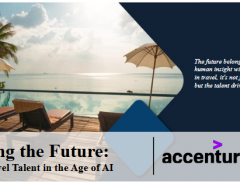There is a substantial development in the world of Talent Acquisition (TA) due to the advent of technologies like RPA, AI, Blockchain etc.
FICCI, in collaboration with Strat-Board, recently carried out a study on the philosophy behind Talent Acquisition, to take stock of current practices, share collective insights and trigger change for long lasting impact on organisations and industry.
Some fundamental questions that need to be addressed are:
1. Availability of high calibre talent remains a challenge across industries: It is essential for Companies to hire exceptional Talent at the right time and at the right cost. Speed of hiring and getting the appropriate talent have become key parameters for the success of an Organisation. The selection process as well as the induction must provide a great experience for the candidate. Technologies like AR/VR, Blockchain etc. enable this talent acquisition and induction experience.
2. Job sites remain the favourite sourcing channel for the industry: While there are numerous channels to source candidates, the popular mechanisms are hiring through job sites, employee referrals and social media. The erstwhile popular ‘Hiring through consultants’ is among the top three sources of hiring for only a third of the organisations surveyed. Social Media is becoming an important pool for recruiters to draw from and Industry is now better leveraging sources like alumni groups and campus placements.
3. The Gig Economy continues to mature across the board: The next few years will see the Gig Economy coming to India in a big way. With benefits of cost, flexibility and expertise organisations of all sizes stand to gain. While specific or specialised projects have seen organisations use freelance more, the adoption of a Gig workforce for interim and some core roles remains underpenetrated. With the advancement of Blockchain, payment to Gig Workers will no longer remain a challenge.
4. HR/TA needs greater skills, depth and possible re-prioritisation to create a strong employer brand: In the digital world of work where the war for talent is only intensifying, it is imperative for TA professionals to be technologically savvy and marketing oriented. The traditional approach to TA is bound to give diminishing returns in the current and future environment. Focus for TA professionals is now on transformation rather than on transactions.
5. Personalisation and a strong candidate experience will be the key differentiators: In a world where the candidates are looking for ‘Customer-like’ experiences, it has become imperative for TA professionals and Organisations to ensure a great ‘Candidate Experience’, especially as they hyper-personalize the process for each candidate. The recruitment process should be improved based on continuous feedback.
6. The new world of assessments is here to stay:Assessments have become key in hiring the right candidate and Organisations are increasingly taking into account a battery of tests to ensure predictability of performance and longevity. This may, in relevant cases, need to be complemented by personal interaction and judgement.
7. Quality of hire is the most critical outcome from TA: The time to move beyond TAT, cost, etc. to performance, fitment, values, tenures and contribution is finally here. The economic disadvantages of a wrong hire can put you back six-fold and organisations of today are in no mood to make mistakes and are beginning to use data in TA to ensure that the quality of decision-making is better.
8. Diversity and inclusion needs greater commitment: The industry is in its early days of making diverse workplaces a reality. The shift from thought to action is happening as organisations take specific measures to create equal opportunities at workplaces. Yet there are deep-rooted biases, complemented by some real-life work situations, which are an impediment for most organisations.Today, diversity has gone well beyond gender and includes age, nationality and now even cobots.
9. Selection biases need careful sensitisation: There is a large string of things we continue to shortlist people on, beyond their capability and potential to do the job. These include beliefs, attitudes and biases rooted in the organization’s culture, and the recruiting individual’s own past experience. We need to be aware and sensitive about these factors, which could often be unconscious.
10. The speed of technology adoption needs to go up: The key to the future is in the effective use of technology, coupled with the human factor, when it comes to TA – mobile enabled, integrated across sources, aligned with all internal processes and stakeholders, and giving a unified candidate experience. This is the need of the hour and the journey has just begun…
(The author is Chairman, FICCI HR Committee and Group President (HR & Corporate Services) & CEO (After-Market sector), Member of the Group Executive Board, Mahindra & Mahindra Ltd.)





